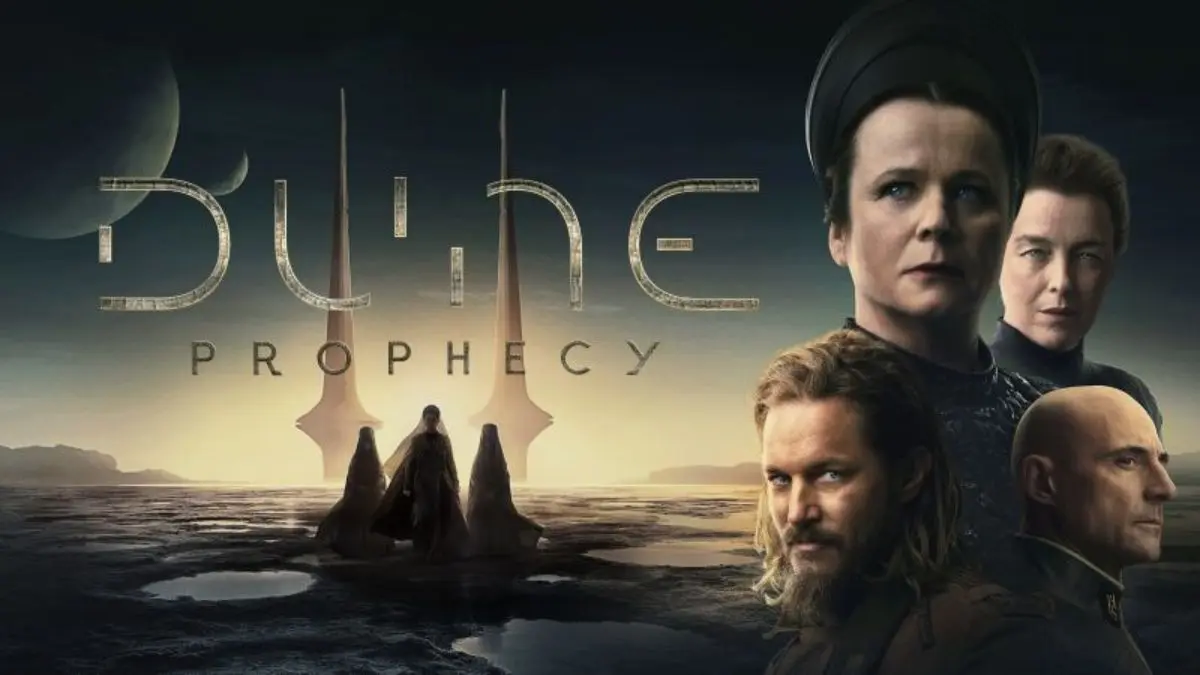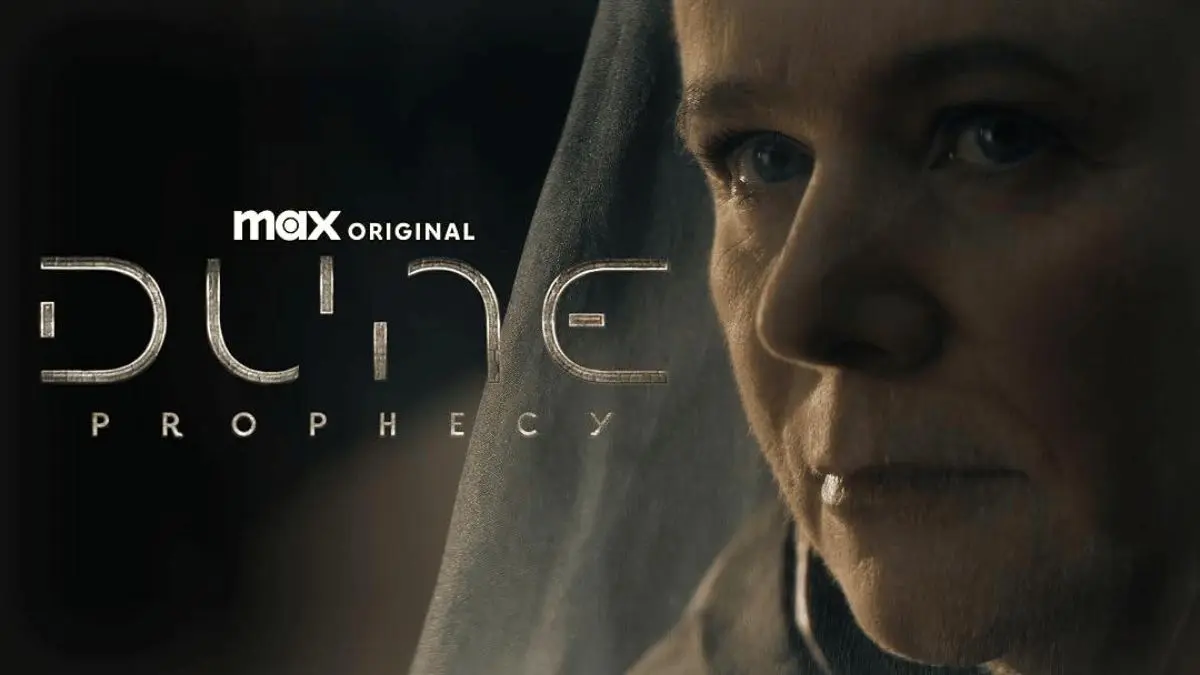The science-fiction realm has seen numerous reinventions of classic universes, but few carry the weight of Frank Herbert’s Dune. A foundational work in speculative fiction, it has inspired an expansive array of adaptations, from the ambitious films of Denis Villeneuve to HBO’s latest TV venture, Dune: Prophecy. This series aims to delve into the origins of the Bene Gesserit sisterhood, the enigmatic and powerful order that looms large in Herbert’s novels and their film adaptations. While the effort is commendable, the execution leaves much to be desired.
Set a staggering 10,000 years before Villeneuve’s films, Dune: Prophecy draws from Sisterhood of Dune, a spin-off novel co-written by Herbert’s son Brian and Kevin J. Anderson. The story centers on Valya and Tula Harkonnen (played in different eras by Jessica Barden, Emily Watson, Emma Canning, and Olivia Williams), who lead the early Bene Gesserit sisterhood through a tumultuous time. These formative years are marked by the fallout of the Butlerian Jihad, a rebellion that purged humanity of artificial intelligence and shaped a galaxy wary of “thinking machines.”
The sisterhood’s mission is both noble and sinister: manipulating birthlines through strategic marriages to ensure the emergence of pliable and effective leaders. As Valya, a young member of the exiled Harkonnen family, muses in the opening voiceover: “What holds more truth? History or prophecy?” This philosophical question sets the tone for a series that is steeped in lore and heavy with ambition.
Yet, ambition alone cannot carry a show. The narrative dives deep into the political machinations of the nascent Imperium, led by Emperor Javicco Corrino (Mark Strong), whose struggles to secure interplanetary peace and familial dominance often fall flat. His children, Princess Ynez (Sarah-Sofie Boussnina) and the illegitimate Constantine (Josh Heuston), are relegated to lackluster subplots involving nightclub escapades on Salusa Secundus. Even a rebellion led by an Atreides ancestor (Chris Mason) fails to inject much-needed intrigue into the Imperial storyline.
The series excels, however, in its portrayal of Valya and Tula. The Harkonnen sisters are the heart of both the flashbacks and the present-day narrative, and the show shines when exploring their journey of hardship, betrayal, and resilience. Their backstory adds depth to the bitter feud between the Harkonnens and Atreides, a conflict that predates even the events of Dune: Prophecy. Jessica Barden and Emma Canning’s performances as the younger sisters stand out, making their struggles and ambitions feel authentic and engaging.
Visually, Dune: Prophecy struggles to match the grandeur of Villeneuve’s films, a comparison it cannot escape. While it borrows elements of Villeneuve’s aesthetic—distinct color palettes and trippy visuals evoking space magic—it falls short in creating a cohesive and immersive look. The plasticky sets and uninspired fight scenes pale in comparison to the cinematic splendor of the palace raids and sandworm spectacles from Dune and Dune: Part II. Costumes appear low-quality, and the digital effects are often glaringly artificial, undermining the sense of a lived-in universe.

The series’ shortcomings are further highlighted when juxtaposed with HBO’s other flagship projects, such as House of the Dragon. Both shows aim to be sprawling epics with political intrigue and complex characters, but where House of the Dragon succeeds in creating a distinctive and polished world, Dune: Prophecy stumbles. Its characters lack the emotional range and charisma of their Westerosi counterparts. There is no Matt Smith reveling in devilish fun or Emma D’Arcy delivering gut-wrenching melancholy. Instead, the performances often feel stiff, and the dialogue is devoid of humor, making the series feel overly serious and, at times, lifeless.
Despite these flaws, Dune: Prophecy does offer moments of intrigue. The show’s exploration of the Bene Gesserit’s early philosophies and practices adds layers to the enigmatic order. Lessons in mind control, resistance to technological reliance, and the spiritual underpinnings of the sisterhood provide glimpses of the intellectual depth Herbert’s fans have come to expect. However, these moments are overshadowed by the series’ tendency to rely on audience familiarity with the films. The references to the spice melange, sandworms, and iconic houses like Atreides and Harkonnen feel more like nostalgic nods than meaningful expansions of the universe.
One of the more puzzling choices in Dune: Prophecy is its approach to the world’s cultural roots. Herbert’s Novels were heavily inspired by Islamic and Arab traditions, a richness that Villeneuve’s films have also muted. The series continues this trend, resulting in a world that feels less grounded and authentic. This erasure of cultural depth is a missed opportunity to explore the full scope of Herbert’s vision.
Ultimately, Dune: Prophecy feels like a noble attempt that fails to live up to its potential. It struggles under the weight of comparisons to Villeneuve’s visually arresting films and the polished storytelling of HBO’s other hits. While the show brings some fresh insights into the Dune lore, it is hampered by lackluster production, uninspired visuals, and uneven performances. The result is a series that is more spiceless than spectacular, leaving fans yearning for the grandeur and complexity of Herbert’s original universe.
For those curious enough to venture into the sands of Dune: Prophecy, the series is available on Sky and NOW TV, with new episodes released weekly. However, temper your expectations: this journey into the desert may leave you longing for the cinematic vistas of Villeneuve’s Dune.
Also Read: Villain-Centric Stories vs. Hero-Led Narratives: Who Steals the Spotlight?









